Piston Selection
Tools Required
| • | J 5239 Connecting Rod Bolt
Guide Set |
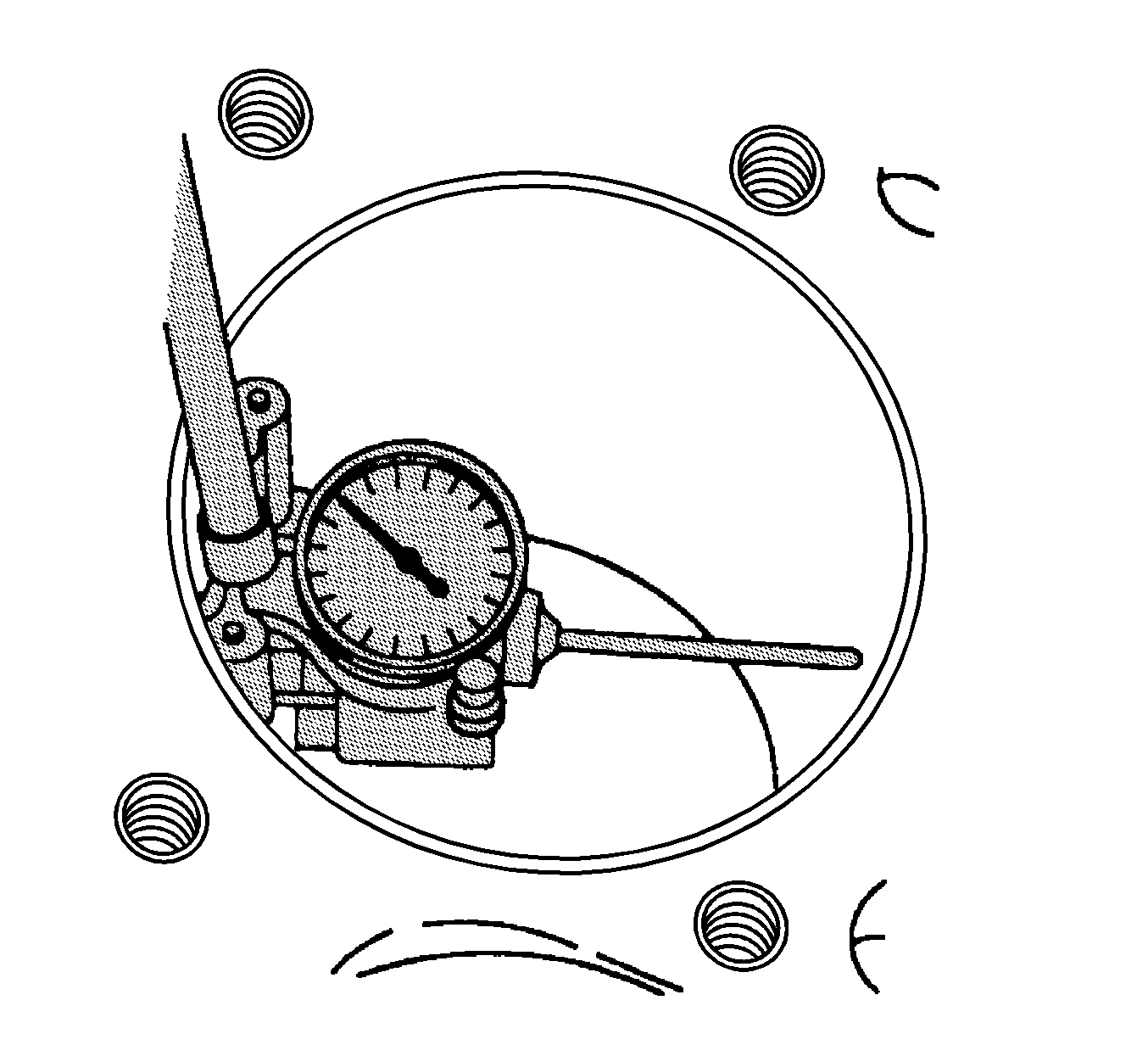
Important: Measurements of all components should be taken with the components at
normal room temperature.
For proper piston fit, the engine block cylinder bores should not have
excessive wear or taper.
A used piston and pin set may be reinstalled if, after cleaning and
inspection, the piston and pin set are within specifications.
- Use the
J 8087 in order to measure
the cylinder bore diameter. Measure at a point 64 mm (2.5 in)
from the top of the cylinder bore.
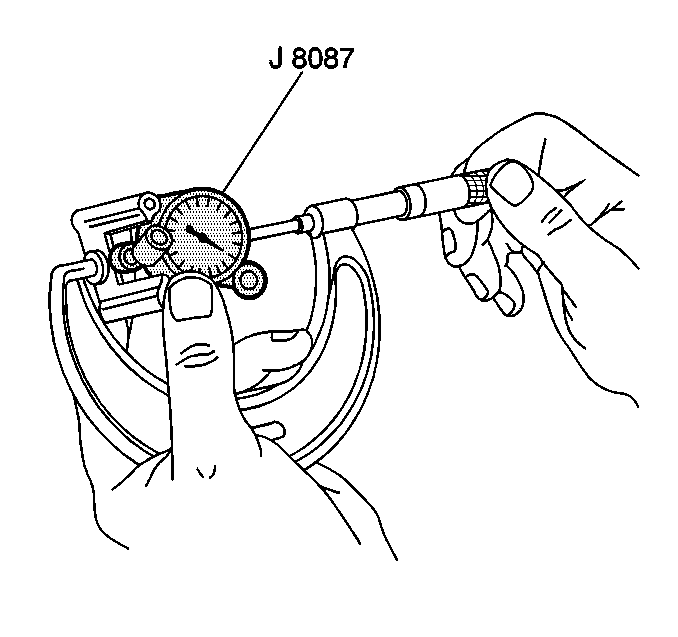
- Measure the
J 8087
with a micrometer and record the reading.
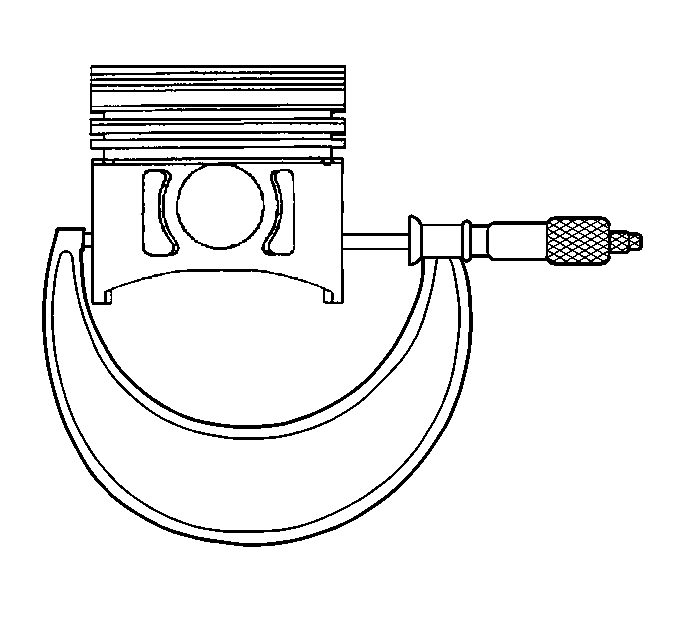
- With a micrometer or caliper at a right
angle to the piston, measure the piston 11 mm (0.433 in) from
the bottom of the skirt.
- Subtract the piston diameter measurement from the cylinder bore
diameter measurement in order to determine piston-to-bore clearance.
Specification
Piston-to-bore clearance 0.018-0.068 mm (0.0007-0.0026 in).
- If the proper clearance cannot be obtained, then select another
piston and measure the clearances.
If the proper fit cannot be obtained, the cylinder bore may require
honing or boring.
- When the piston-to-cylinder bore clearance is within specifications,
permanently mark the top of the piston for installation into the proper cylinder.
Installation Procedure
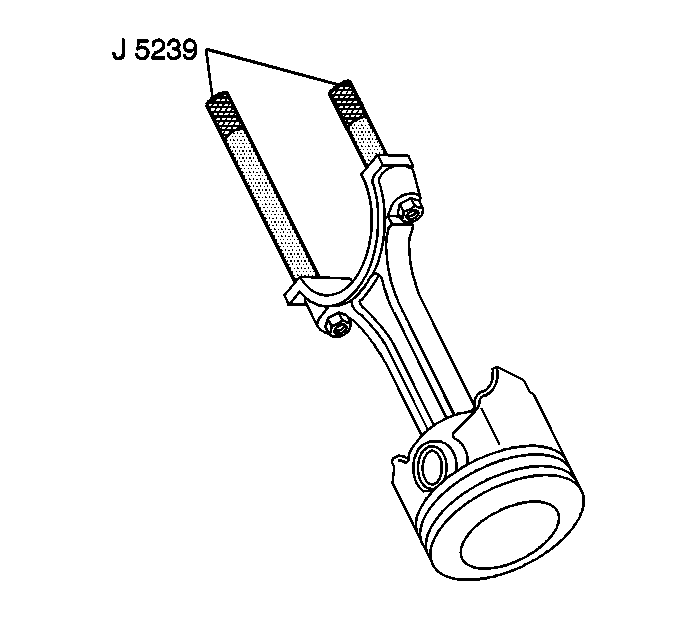
- Apply clean engine oil to the following
components:
| • | The connecting rod bearing surfaces |
- Install the
J 5239 onto the
connecting rod bolts.
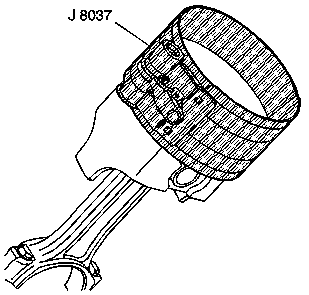
- Install the
J 8037
onto the piston and compress the piston rings.
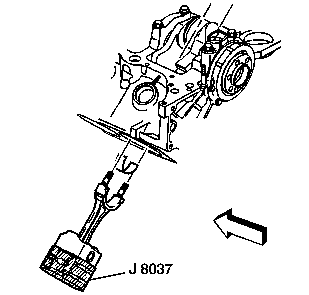
Important: The mark on the top of the piston must face the front of the engine
block.
When assembled, the flanges on the connecting rod and connecting rod
cap should point to the front of the engine block on the left bank and point
to the rear of the engine block on the right bank.
- Install the piston and connecting rod assembly, and the
J 8037 into the proper cylinder bore.
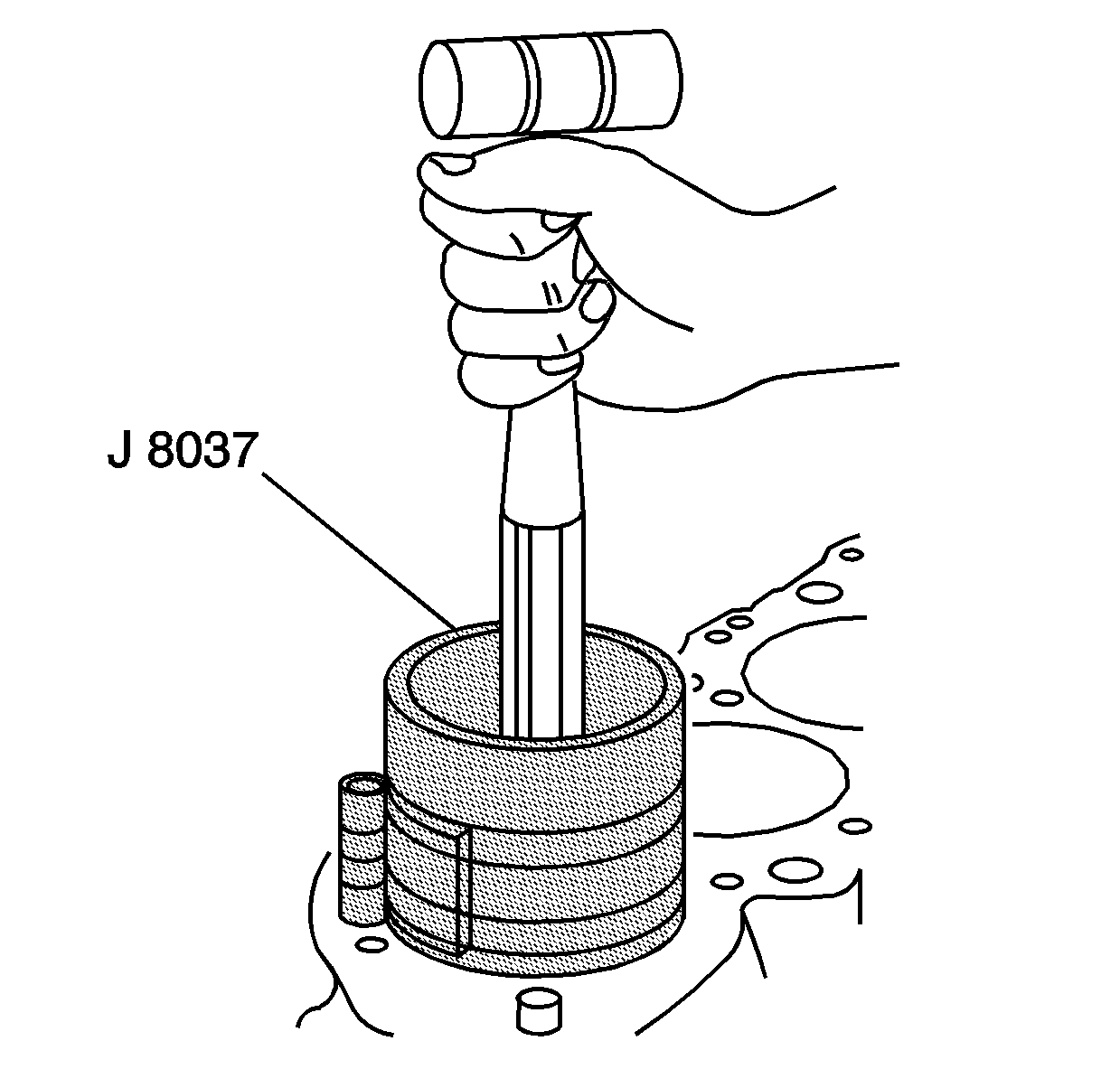
- Use the
J 8037
and the
J 5239 and lightly tap the top
of the piston with a wooden hammer handle.
| 5.1. | Hold the
J 8037 firmly against
the engine block until all of the piston rings have entered the cylinder bore. |
| 5.2. | Use the
J 5239 in order to
guide the connecting rod onto the crankshaft journal. |
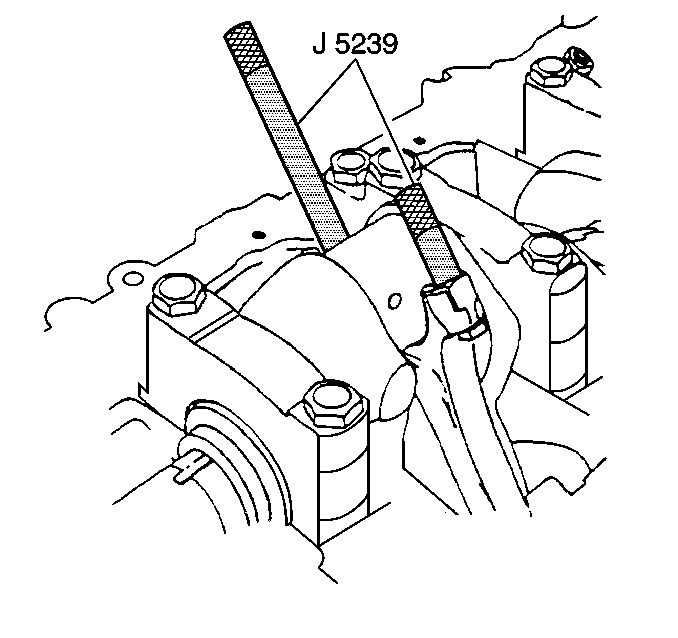
- Remove the
J 5239 from
the connecting rod bolts.
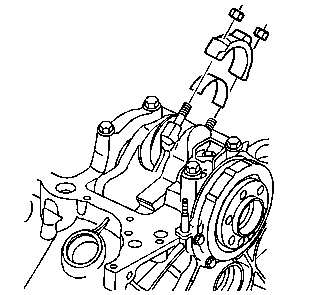
Notice: Use the correct fastener in the correct location. Replacement fasteners
must be the correct part number for that application. Fasteners requiring
replacement or fasteners requiring the use of thread locking compound or sealant
are identified in the service procedure. Do not use paints, lubricants, or
corrosion inhibitors on fasteners or fastener joint surfaces unless specified.
These coatings affect fastener torque and joint clamping force and may damage
the fastener. Use the correct tightening sequence and specifications when
installing fasteners in order to avoid damage to parts and systems.
- Install the connecting rod cap and nuts.
Tighten
- Tighten the nuts on the first pass evenly to 27 N·m
(20 lb ft).
- Tighten the nuts on the final pass to 55 degrees using
the
J 36660-A .
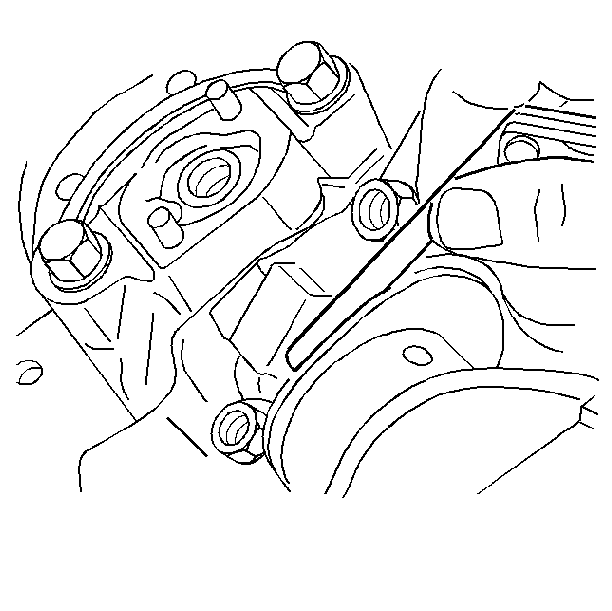
- Once the piston and connecting rod assemblies
have been installed, lightly tap each connecting rod assembly (parallel to
the crankpin) in order to make sure that the connecting rods have the proper
side clearance.
- Use a feeler gauge or a dial indicator to measure the side clearance
between the connecting rod caps. The connecting rod side clearance measurement
should be 0.15-0.68 mm (0.006-0.027 in).










